An Insight into Autism’s Relationship with Mental Well-Being
Autism Spectrum Disorder (ASD) is a complex neurodevelopmental condition affecting social interaction, communication, and behavior. While autism itself is not a mental health disorder, individuals on the spectrum are more prone to experiencing various mental health challenges. This article explores the intricate relationship between autism and mental health, examining common co-occurring conditions, diagnostic distinctions, treatment options, and the societal factors influencing mental health outcomes.
Understanding Autism and Its Spectrum Characteristics
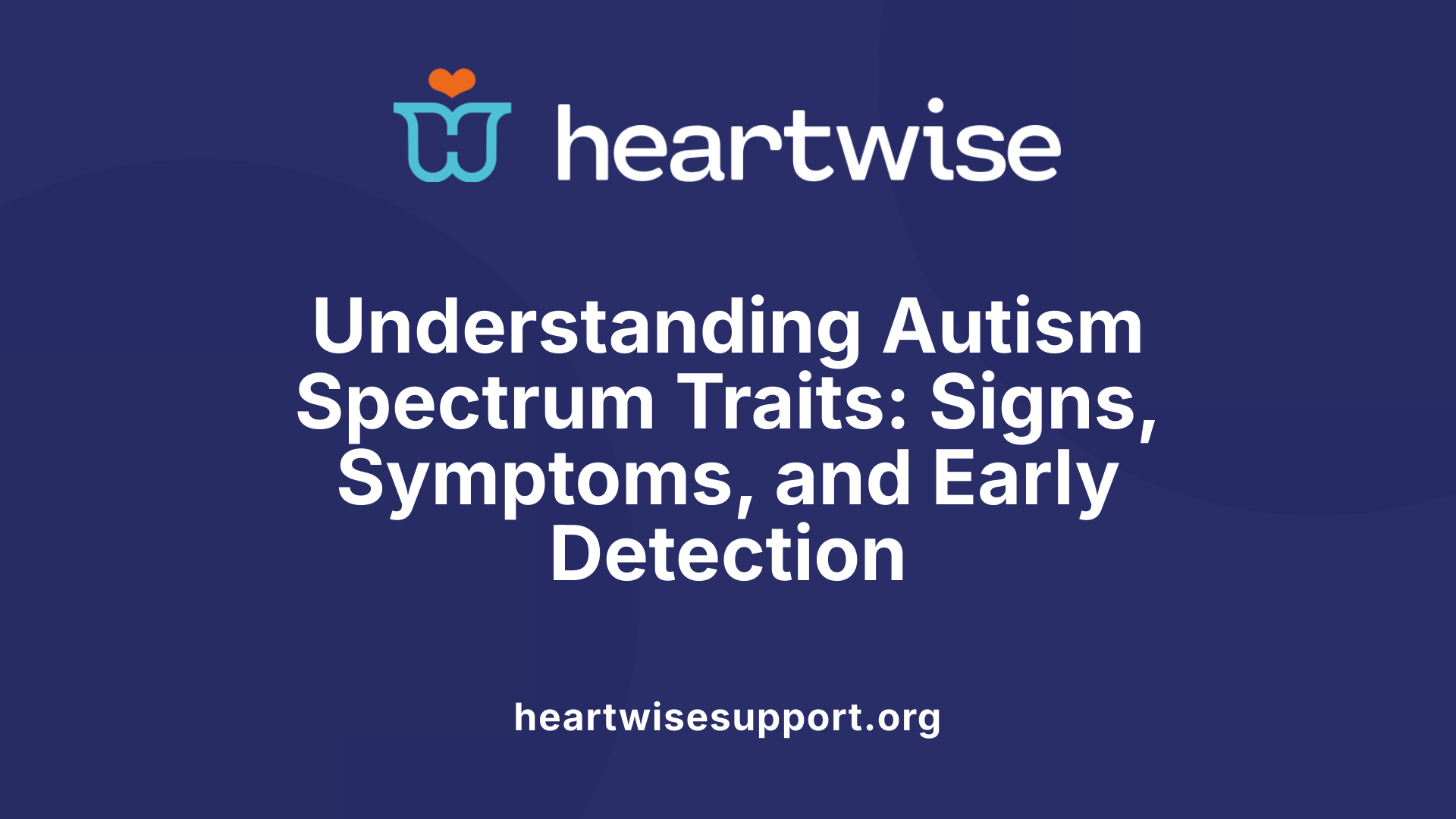
Features and Symptoms of Autism
Autism spectrum disorder (ASD) is a neurological condition characterized by differences in social communication, interaction, repetitive behaviors, and sensory sensitivities. Typical signs include difficulty understanding social cues, using non-verbal gestures, a strong preference for routines, and heightened sensitivities to lights and sounds. Many autistic individuals also display highly focused interests, repetitive movements, sleep issues, and sometimes irritability.
Symptoms generally appear within the first two years of life, although some signs can be noticed as early as age one. These traits exist along a spectrum, meaning some individuals might experience mild challenges while others face more significant difficulties. The causes of autism are believed to involve genetic and environmental factors, although the precise causes are not fully understood.
Variation in Needs and Abilities among Autistic Individuals
Autistic people have diverse needs and abilities. Some require constant, 24-hour care due to significant communication and behavioral challenges, while others may just need more time to process information or adapt to change. Sensory sensitivities and social difficulties can influence daily routines and support requirements.
Many individuals may experience co-occurring conditions such as ADHD, anxiety, depression, OCD, epilepsy, gastrointestinal issues, and sleep problems. These can compound challenges but also highlight the importance of tailored interventions. Support options range from behavioral therapies to medication, with an increasing emphasis on person-centered approaches.
Early Signs and Diagnosis Procedures
Early identification of autism is crucial for effective intervention. Signatures often include delayed language development, reduced eye contact, resistance to change, and repetitive behaviors. Developmental screening is typically the first step, often followed by comprehensive evaluations conducted by specialized healthcare teams.
Diagnostic tools include behavioral assessments like the Autism Diagnostic Observation Schedule (ADOS-2) and Autism Diagnostic Interview-Revised (ADI-R). These involve detailed observation and history taking to differentiate ASD from other developmental or mental health conditions.
While improvements have been made in screening and diagnosis, challenges persist, especially in distinguishing autism from other mental health issues. Early diagnosis allows access to therapies that can markedly improve communication, social skills, and daily functioning.
| Aspect | Description | Additional Info |
|---|---|---|
| Core Symptoms | Social communication difficulties, repetitive behaviors, sensory issues | These persist throughout life, but their expression varies |
| Co-occurring Conditions | Anxiety, ADHD, epilepsy, gastrointestinal problems | Frequently present alongside autism, requiring integrated support |
| Diagnostic Tools | ADOS-2, ADI-R, developmental screening | Used by trained healthcare providers to ensure accurate diagnosis |
| Early Signs | Lack of eye contact, delayed speech, routine resistance | Recognizable usually by age 2, but signs can appear earlier |
| Variability | Mild to severe challenges | Supports the spectrum concept of ASD |
Understanding autism involves recognizing its broad spectrum of traits, the unique needs of individuals, and the importance of early detection. By improving awareness, diagnostic methods, and tailored support, we can better serve autistic individuals in their developmental journeys.
The Spectrum of Needs and Well-Being
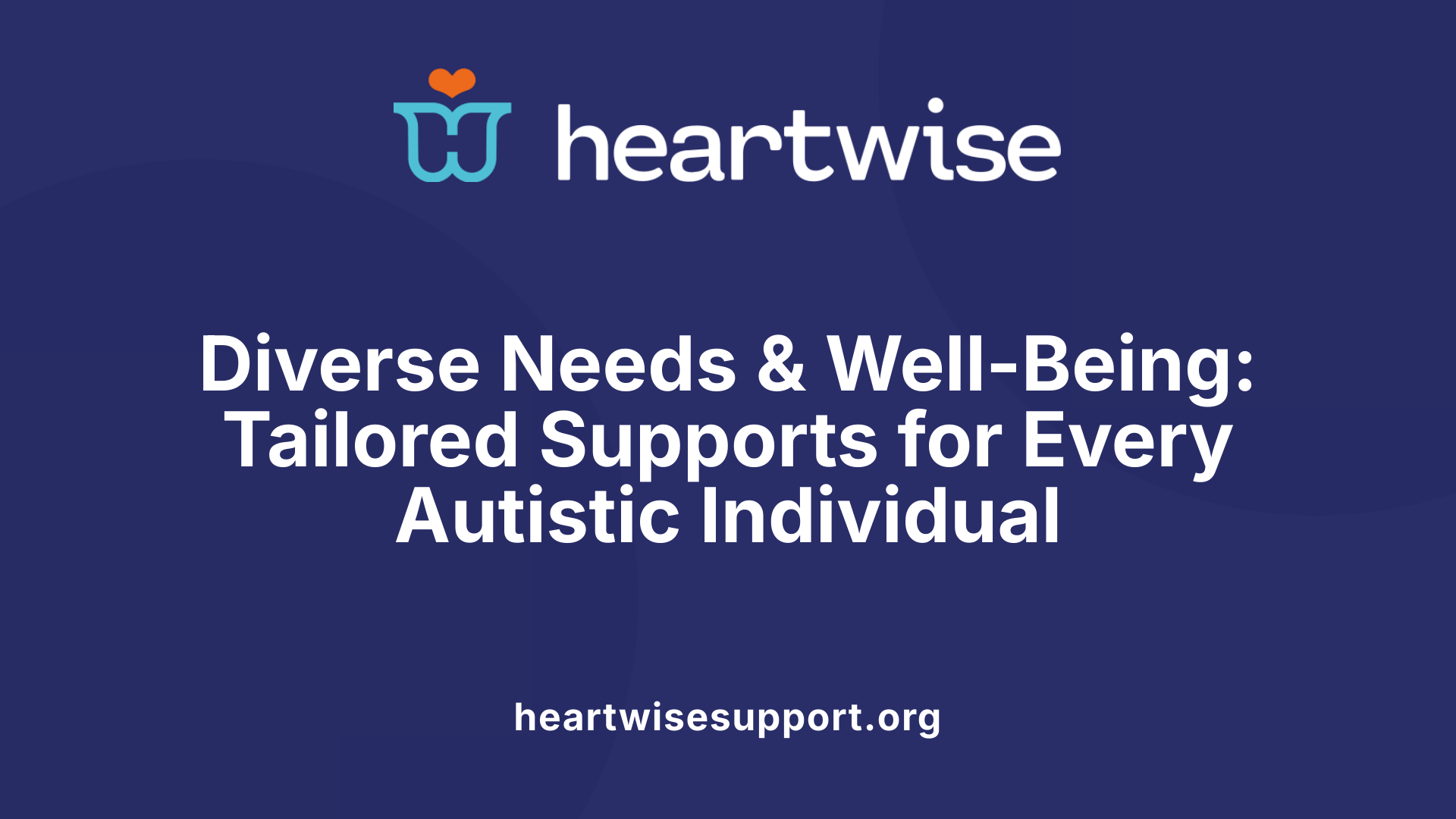
Variability in Needs and Accommodations for Autistic Individuals
Autism is a spectrum, meaning each person experiences different traits, challenges, and strengths. Some individuals may require 24-hour care and extensive support, especially when they face significant communication, behavioral, or sensory processing difficulties. Others might need more time to understand new information or adapt to change, benefiting from tailored educational approaches or structured routines. Support options can include behavioral therapies, speech and language therapy, occupational activities, and social skills training. Medications might help manage specific co-occurring conditions such as anxiety or ADHD, but interventions are always adapted to an individual's unique profile.
Understanding this variability is crucial. It ensures that supports are personalized—whether it involves sensory accommodations like noise-canceling headphones or social supports that foster community inclusion. The goal is to help each person build on their strengths while managing their challenges, promoting independence, and improving overall well-being.
Impact of Societal Attitudes and Acceptance
Society’s perception of autism significantly influences mental health outcomes for autistic individuals. Many autistic people deal with misunderstandings, stigma, and discrimination, which can lead to feelings of loneliness, social isolation, and low self-esteem. External acceptance from society, family, and friends heavily predicts mental health states like depression and stress.
Research indicates that positive societal attitudes, understanding, and inclusive environments can markedly improve mental health among autistic adults. When society accepts neurodiversity and recognizes autistic traits as part of human diversity, it reduces feelings of being 'different' or 'less than.' Conversely, masking or camouflaging autistic traits—an exhausting effort to hide one’s authentic self—correlates with increased depression.
Supporting awareness campaigns, inclusive policies, and community-based programs fosters acceptance. These initiatives not only reduce stigma but also create environments where autistic individuals feel valued and supported, which is essential for mental well-being.
The Role of Early Diagnosis and Intervention
Early diagnosis plays a pivotal role in supporting autistic children and their families. Detecting autism spectrum disorder (ASD) within the first two years enables timely access to interventions. Such early support, including behavioral and educational therapies, can significantly improve communication, social skills, and adaptive behaviors.
Early intervention also helps address co-occurring mental health issues like anxiety, depression, or behavioral challenges before they become more entrenched. This proactive approach can reduce the risk of autistic burnout, meltdowns, and shutdowns, which often result from environmental and social stressors.
Comprehensive evaluations by experienced healthcare teams ensure accurate diagnosis, avoiding misdiagnosis or delayed support. With tailored support plans, children can develop coping strategies and resilience, fostering higher self-esteem and better mental health as they grow.
Understanding the interconnectedness between autism traits, societal attitudes, and early intervention is vital in supporting the diverse needs of autistic individuals. When supported across these domains, autistic people can thrive, navigating life's challenges with resilience and confidence.
| Aspect | Impact | Support Strategies |
|---|---|---|
| Variability in Support Needs | Ranges from minimal accommodations to intensive 24-hour care | Personalized therapies, sensory adaptations, assistive technologies |
| Society’s Attitudes | Can either empower or hinder mental health | Awareness campaigns, acceptance programs, anti-discrimination policies |
| Early Diagnosis | Enables timely, effective interventions | Developmental screening, multidisciplinary evaluations, early therapeutic support |
Trauma, Masking, and the Mental Health Cycle
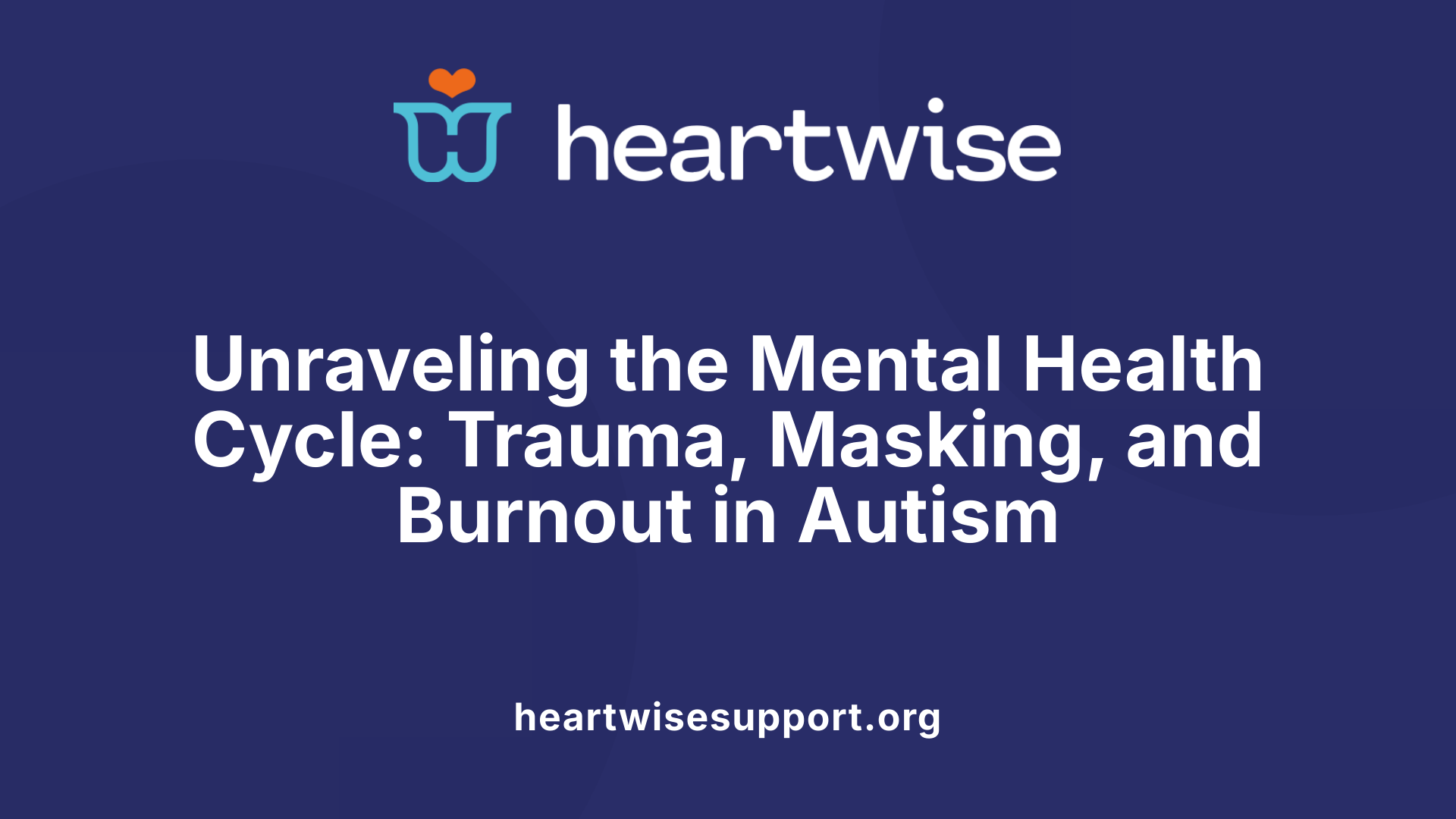
What challenges and symptoms related to mental health in autistic individuals?
Autistic individuals face a range of mental health challenges that are often intertwined with their neurological and sensory traits. Common issues include anxiety, depression, burnout, and trauma. These challenges are frequently compounded by societal misunderstandings, stigma, and environments not tailored to their needs.
Autistic traits such as difficulty recognizing others' feelings, sensory sensitivities, and reliance on routines can lead to misunderstandings and social isolation. Moreover, the prevalence of co-occurring mental health conditions is high, with about 70% of autistic people experiencing issues like anxiety, depression, ADHD, or OCD.
Symptoms can manifest in various ways. For instance, anxiety in children with autism might look like tantrums, avoidance, or hitting, while adults may experience persistent worry or emotional exhaustion. These symptoms can stem from internal struggles and external stressors, creating a cycle that affects overall wellbeing.
Autistic burnout and exhaustion
Autistic burnout refers to extreme physical and emotional exhaustion resulting from prolonged exposure to environments or societal expectations that do not accommodate autistic traits. It is a significant but often overlooked aspect of mental health in autism.
Burnout can include fatigue, reduced ability to function, emotional shutdowns, and difficulty dealing with everyday tasks. It often results from relentless masking, sensory overload, and the frustration of navigating a world not designed for autistic needs.
This state can last for weeks or months, severely impacting mental and physical health. Recognizing burnout is critical, as it signals the need for rest, support, and environmental adjustments.
Masking behaviors and their mental health impact
Masking involves hiding or suppressing autistic traits to blend into social settings. It’s a coping strategy that many autistic individuals adopt to reduce stigma or social rejection.
While masking might offer short-term social benefits, it is exhausting and can have severe mental health repercussions. Continual masking has been linked to increased rates of depression, anxiety, and feelings of loneliness.
Many individuals report feeling disconnected from their true selves after prolonged masking, leading to identity confusion and emotional distress. In some cases, masking can delay diagnosis and support, as outward behaviors appear less severe.
Trauma and its prevalence among autistic individuals
Trauma is highly prevalent among the autistic community, often stemming from negative experiences such as bullying, discrimination, or misunderstanding. These traumatic events may occur during critical developmental periods or later in life.
Research indicates that many autistic individuals have experienced trauma that affects their mental health. For example, traumatic events can exacerbate existing symptoms or lead to conditions like post-traumatic stress disorder (PTSD).
Trauma can also influence how autistic individuals respond to new stressors, potentially triggering shutdowns, meltdowns, or avoidance behaviors. Addressing trauma requires sensitive, individualized approaches that consider both neurodiversity and trauma-informed care.
Connecting the cycle: autism, mental health, and societal impact
The relationship between autism, masking, trauma, and mental health difficulties forms a complex cycle. Societal barriers and misunderstandings lead to increased stress and trauma, which in turn exacerbate mental health issues.
Masked behaviors, while initially protective, can deepen emotional exhaustion and contribute to feelings of alienation. Over time, this cycle can lead to burnout, depression, and other mental health conditions.
Efforts to break this cycle involve promoting societal acceptance, providing tailored mental health services, and encouraging self-acceptance among autistic individuals.
Support strategies and resources
Supporting autistic individuals’ mental health requires understanding and addressing the unique challenges they face. This includes creating environments that reduce sensory overload, implementing flexible routines, and fostering acceptance.
Therapies such as cognitive-behavioral therapy adapted for autism, peer support, and community engagement have shown promise. Self-help tools like mindfulness, sensory regulation strategies, and apps such as Molehill Mountain can also promote well-being.
Organizations like Autism Speaks and Autistica provide resources on managing anxiety, trauma, and mental health conditions. Specialized training for mental health professionals is essential to improve diagnosis, treatment, and support.
Final remarks
The mental health cycle in autism is intricate, driven by biological, social, and environmental factors. Recognizing the impacts of trauma, masking, and burnout is crucial for providing effective care.
Increasing societal acceptance and understanding can significantly reduce stressors, foster resilience, and improve overall quality of life for autistic individuals. Supporting these efforts involves education, advocacy, and tailored supports that respect neurodiversity.
| Aspect | Description | Additional Info |
|---|---|---|
| Main Challenges | Anxiety, depression, burnout, trauma | High prevalence among autistic individuals |
| Masking | Concealing traits to fit in | Long-term effects include depression and identity loss |
| Trauma | Resulting from bullying, discrimination | Exacerbates mental health issues |
| Support Strategies | Tailored therapies, community resources | Improve quality of life |
| Societal Role | Acceptance and inclusive environments | Reduces stress and trauma |
Current Supports and Future Directions
What treatments and support strategies are available for addressing mental health challenges in autistic individuals?
Autistic individuals often experience co-occurring mental health conditions such as anxiety, depression, OCD, ADHD, and more. To address these challenges, a variety of treatments and strategies are available.
Therapeutic options include talking therapies like cognitive behavioral therapy (CBT), which has been adapted to meet the needs of autistic individuals. These therapies focus on managing anxiety, depression, and related issues.
Medication can also be prescribed for specific symptoms like aggression, anxiety, or repetitive behaviors. It’s crucial that medications are used under strict supervision and tailored to each person.
Support strategies extend beyond formal therapy. Self-help tools, such as mindfulness techniques recommended by organizations like Autistica, and apps like Molehill Mountain, can help individuals develop coping skills.
Educational and occupational therapies—such as speech-language therapy, behavioral interventions like Applied Behavior Analysis (ABA), and social skills training—are widely used to improve daily functioning.
Family and peer support are essential elements. Support groups and community networks offer social connection, shared experiences, and practical advice.
Furthermore, resources like guides on managing anxiety and navigating healthcare environments help empower autistic individuals and their families.
Lastly, multidisciplinary support involving healthcare professionals trained in autism ensures that mental health care is sensitive to individual needs and promotes overall well-being.
What barriers to accessing care and solutions exist?
Despite the availability of treatments, several barriers hinder autistic individuals from receiving appropriate mental health support.
Low awareness of autism among healthcare practitioners can lead to misdiagnosis or inadequate treatment. Sensory sensitivities and communication challenges may also make traditional healthcare settings overwhelming or inaccessible.
Long waiting times, especially in public health systems, further delay critical intervention. Additionally, a shortage of providers experienced in autism-specific mental health care significantly impacts access.
Cultural stigma and misconceptions about autism and mental health can discourage families from seeking help. Socioeconomic factors and geographic barriers also play roles.
To overcome these barriers, solutions include improving autism training for health professionals, increasing specialized service provision, and integrating mental health support within autism services.
Telehealth has become a vital tool, expanding reach especially in underserved or rural areas. Tailored, sensory-friendly environments in clinics can improve comfort.
Policy initiatives advocating for parity in mental health and increased funding for autism-related services are essential. Public awareness campaigns help reduce stigma and promote early intervention.
How are training, policy, and community-based support shaping future directions?
Investment in training programs for mental health professionals is crucial. These programs aim to improve understanding of autism's nuances, fostering more effective, compassionate care.
Policy efforts, such as the Autism CARES Act and the Mental Health Parity Act, advocate for equitable access to services and recognize autism-specific needs. Such legislation promotes funding for research and supports community programs.
Community-based initiatives create inclusive environments and foster societal acceptance. Training community members, educators, and workplaces on autism awareness helps reduce social stigma and discrimination.
Organizations like Autism Speaks and the Autistic Self Advocacy Network (ASAN) develop resources, advocate for rights, and implement programs that empower autistic individuals.
The development of autism-friendly workplaces, educational settings, and public spaces is an ongoing goal, supported by policy changes and community engagement.
Additionally, specialized training courses focus on understanding stress and anxiety in autism, equipping professionals to support mental health proactively.
As research continues to uncover the complex interactions between autism and mental health, future strategies are expected to emphasize early detection, personalized care, and societal acceptance.
| Aspect | Current State | Future Directions | Additional Details |
|---|---|---|---|
| Treatments | Behavioral, psychological, and medical therapies | More personalized approaches, early intervention | Involves CBT, medication, ABA, social skills training |
| Barriers | Lack of awareness, sensory and communication challenges | Improved training, sensory-friendly environments, telehealth | Aims to reduce disparities in access |
| Policies | Promoting legislation for autism support | Increased funding, autism-friendly policies | Supports research, community programs, inclusivity |
| Community Support | Support groups, advocacy organizations | Expand programs, inclusion efforts | Empowerment and societal acceptance |
Addressing autism’s mental health needs requires an integrated approach combining therapies, policy support, community engagement, and ongoing research. This collaborative effort aims to improve quality of life and foster a society that understands and accommodates neurodiversity.
Research and Innovation in Autism and Mental Health
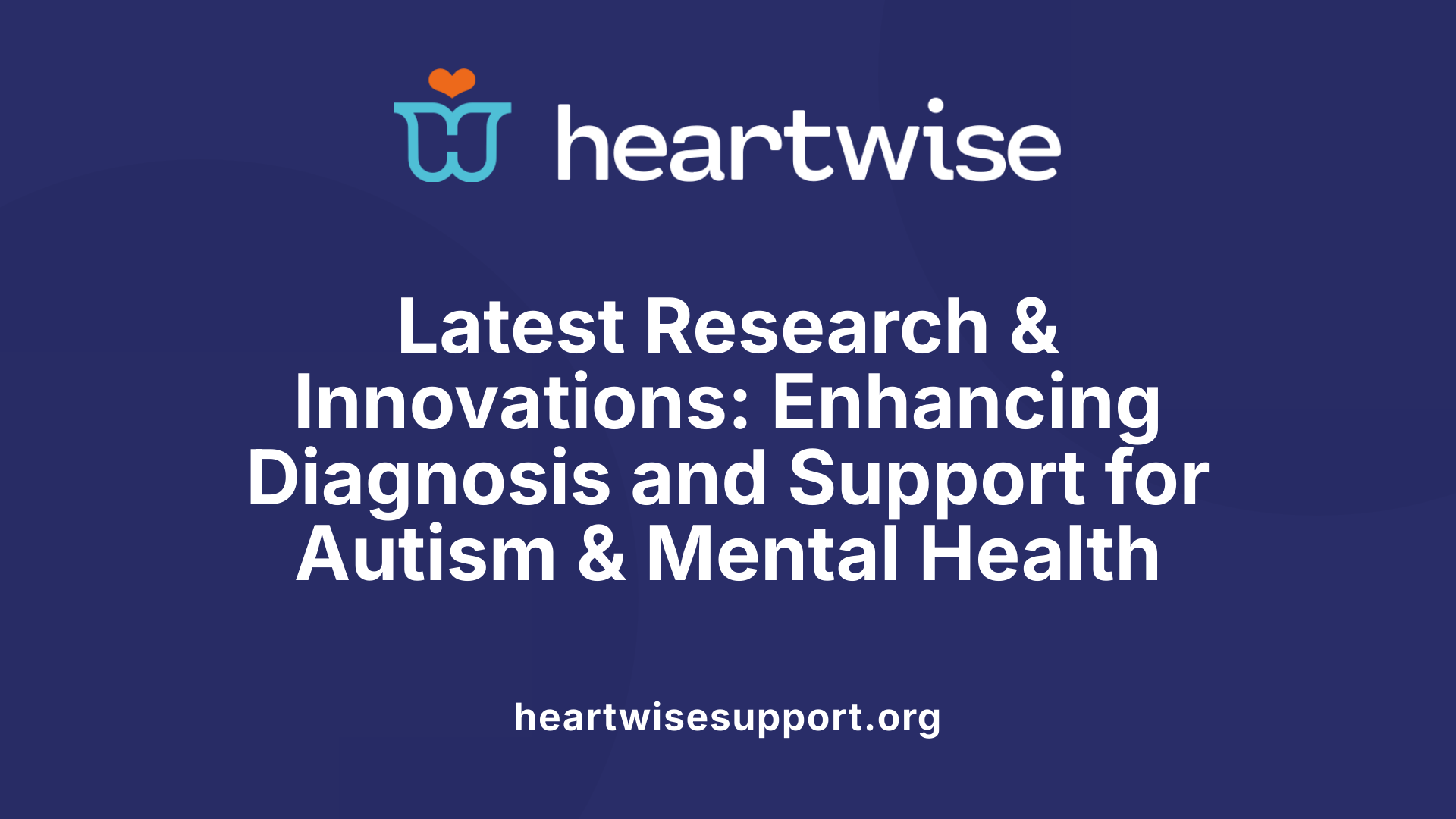
What are some key insights or recent research findings on the connection between autism and mental health?
Recent research highlights a significant association between autism and increased mental health difficulties. Studies show that approximately 50-80% of autistic individuals experience mental health conditions like anxiety, depression, OCD, ADHD, and bipolar disorder. The elevated rates are linked to a combination of biological factors—such as sensory sensitivities, gut microbiome imbalances, and autonomic nervous system dysregulation—and social challenges like misunderstanding, stigma, and social isolation.
One primary insight is that mental health problems are often a response to external societal barriers rather than inherent to autism. For example, masking or camouflaging autistic traits to fit social norms can lead to exhaustion and increase vulnerability to depression. Additionally, research suggests that societal acceptance and personal validation are strongly correlated with better mental health outcomes. A study found that acceptance from others and within oneself significantly predicted lower depression and stress levels among autistic adults.
Diagnostically, advances have improved early detection, with reliable identification often possible by age two through developmental screening. Nonetheless, challenges such as diagnostic overshadowing—which can cause clinicians to misattribute mental health symptoms to autism traits—still exist, leading to underdiagnosis or misdiagnosis of conditions like anxiety and trauma.
Emerging research is also exploring biological pathways linking gastrointestinal health, gut microbiome imbalances, and mental health issues in autism. Innovations in understanding these pathways open potential for dietary interventions and microbiome-targeted therapies, aiming to address both physical and mental health simultaneously.
Furthermore, new therapeutic approaches are being tailored to the unique needs of autistic individuals. Adapted cognitive-behavioral therapies (CBT), for instance, now incorporate sensory considerations and communication supports, facilitating better engagement and efficacy.
Recent advances in diagnosis and intervention
Recent years have seen significant improvement in early screening and a move toward more personalized intervention strategies. Technological innovations, such as digital apps like Molehill Mountain, offer self-help tools that empower autistic individuals to manage stress and anxiety independently.
Behavioral, educational, and therapeutic interventions now emphasize early intervention—ideally before age three—which can dramatically enhance social, communicative, and adaptive skills. Evidence-based programs like applied behavior analysis (ABA) continue to develop, integrating holistic approaches that consider co-occurring mental health conditions.
During the COVID-19 pandemic, virtual therapy sessions and telehealth services became more prevalent, increasing access to mental health support while accommodating sensory and social needs of autistic individuals.
Emerging biological and behavioral research
Cutting-edge biological research is focusing on genetic and environmental causes of autism, noting numerous genetic predispositions and environmental influences such as prenatal exposures to certain medications. These studies contribute to the understanding that autism is a spectrum with diverse biological underpinnings.
Behavioral research emphasizes understanding and managing sensory sensitivities, repetitive behaviors, and emotional regulation difficulties. For example, initiatives like autism stress and anxiety training educate professionals on personalized strategies to reduce distress.
Simultaneously, advancements in neuroimaging techniques help identify brain activity patterns associated with autism and co-occurring mental health issues, fostering potential for targeted interventions.
The role of societal acceptance and trauma-informed care
A growing area of focus is societal acceptance, which research indicates has a direct impact on mental health. Greater societal understanding and reducing stigma can lead to improved self-esteem and decreased anxiety for autistic individuals.
Trauma-informed care, which recognizes past traumatic experiences including bullying, misunderstanding, and abuse, is increasingly integrated into mental health services for autism. Recognizing that stressors and traumatic events are common in this population encourages supportive environments that foster resilience and recovery.
Programs aimed at increasing autism friendliness—such as training for healthcare providers, workplaces, and communities—are also crucial. These initiatives not only improve access to appropriate mental health services but also help dismantle societal barriers contributing to mental health disparities.
| Aspect | Focus | Recent Development | Impact |
|---|---|---|---|
| Diagnostic Advances | Early detection | Screening tools reliable by age two | Timely intervention improves outcomes |
| Biological Research | Genetics & microbiome | Studies linking gut health and mental health | Potential new treatment targets |
| Therapy Innovations | Customized CBT & behavioral strategies | Incorporation of sensory sensitivities | Better engagement & symptom management |
| Societal Acceptance | Community understanding | Reduction in stigma & negative attitudes | Improved mental health & quality of life |
| Trauma-Informed Care | Recognizing past trauma | Integration into autism services | Increased resilience & well-being |
This comprehensive and evolving research landscape underscores the importance of integrated approaches that consider biological, psychological, and societal factors in supporting the mental health of autistic individuals. Continued innovation and societal change are pivotal in enhancing quality of life for people on the autism spectrum.
Supporting Autistic Individuals and Their Families
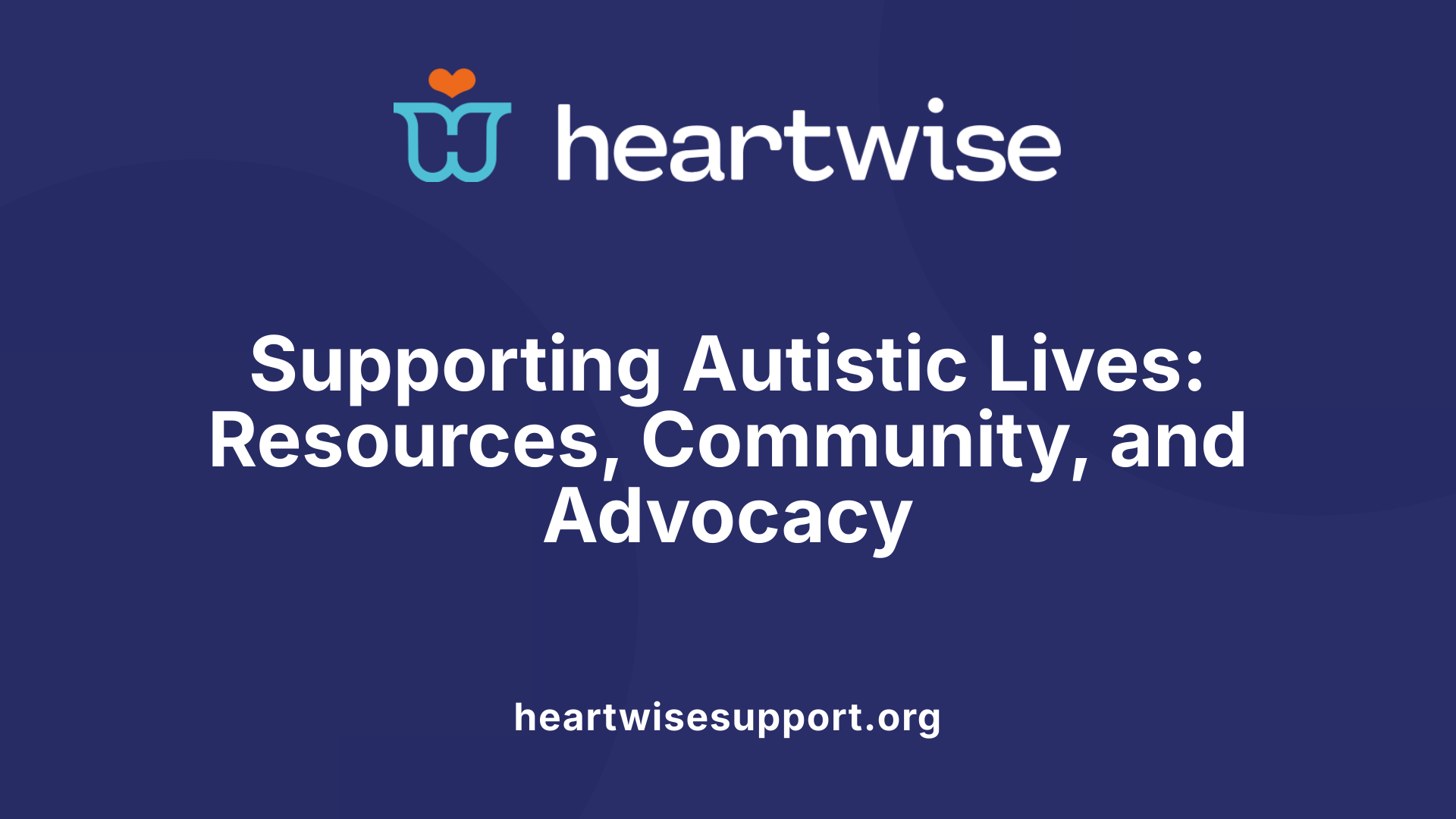
Resources and organizations
A wide array of organizations work tirelessly to support autism and mental health issues among autistic individuals. Groups such as Autism Speaks and the Autism Society advocate for better policies, research, and resources. They provide educational materials, toolkits, and funding initiatives aimed at improving diagnosis, intervention, and acceptance.
The Autistic Self Advocacy Network (ASAN) empowers autistic voices, providing a platform for self-advocacy and policy change. They promote awareness and promote legislation that supports individuals’ rights. Autism Research institutes and networks like Autism Care Network (ACNet) and Autism Response Team (ART) deliver crucial research data, health care resources, and crisis support.
Family-oriented resources include guides on managing co-occurring mental health conditions, strategies for daily routines, sensory accommodations, and navigating healthcare. These materials are accessible through official websites, community centers, and healthcare providers.
Community and peer support networks
Community and peer networks play vital roles in fostering social inclusion and emotional well-being. Support groups like IRC Social Skills, AANE, and GRASP provide safe spaces for sharing experiences, advice, and encouragement.
Online communities, virtual buddy programs, and social skills platforms extend support beyond geographical boundaries. These networks help reduce feelings of isolation, promote understanding, and build resilience.
Connecting with local autism societies, support groups, or online forums offers ongoing peer support, mentorship, and caregiver assistance. Such platforms promote community integration and acceptance, crucial for mental health.
Advocacy, training, and policy initiatives
Policy initiatives focus on legislative measures that enhance access to quality support and ensure parity in mental health care. Notable policies like the Autism CARES Act, the Mental Health Parity Act, and programs like Workplace Inclusion Now (WIN) aim to address systemic barriers.
Training programs such as autism-specific mental health workshops and stress and anxiety understanding courses equip healthcare providers, educators, and employers with essential skills. These initiatives foster more inclusive environments where autistic individuals can thrive.
Educational campaigns aim to dispel misconceptions and advocate for societal acceptance. Legislation and community programs are increasingly emphasizing reasonable adjustments, workplace inclusion, and educational supports.
Addressing barriers to mental health treatment
Support for autistic individuals faces challenges like low autism awareness among health practitioners, communication difficulties, sensory sensitivities, and poor inter-sector coordination. This often leads to misdiagnosis, inadequate treatment, or neglect of mental health needs.
Training healthcare professionals to recognize autism’s diverse presentation and co-occurring conditions is essential. Developing specialized diagnostic tools and treatment protocols ensures more accurate assessments and tailored interventions.
Building integrated support systems that connect health, education, and social services help reduce gaps and improve care quality. Outreach programs and community-based services further promote early intervention and continuous support.
| Aspect | Description | Supporting Resources |
|---|---|---|
| Autism Awareness | Improving practitioner knowledge | Autism Speaks, local health initiatives |
| Communication Difficulties | Adapted therapies | Speech-language therapy, social skills groups |
| Sensory Sensitivities | Sensory-friendly environments | Autism support centers, tailored community spaces |
| Sector Coordination | Integrated services | Multi-disciplinary teams, case management |
More about support organizations
Understanding the landscape of autism and mental health support involves exploring organizations dedicated to advocacy, research, and community support. Searching for "Support organizations for autism, family resources, advocacy, community programs, policy initiatives for mental health support" can provide current updates and accessible tools for families, professionals, and individuals.
Providing appropriate resources, community acceptance, and policy support is crucial for improving mental health outcomes among autistic individuals. By fostering inclusive environments, enhancing professional training, and empowering advocacy, society can make significant strides toward supporting the well-being and dignity of autistic people.
A Path Toward Better Understanding and Support
Recognizing the complex connection between autism and mental health is vital for fostering inclusive, supportive environments that respect individual differences. By improving awareness, diagnosis, intervention, and societal attitudes, we can ensure that autistic individuals receive the mental health care they need to thrive and lead fulfilling lives. Continued research, policy reform, and community engagement are essential steps in bridging gaps and promoting well-being across the autism spectrum.
References
- Autism and mental health
- Mental health - National Autistic Society
- Autism and mental health
- Autism Spectrum Disorder - National Institute of Mental Health (NIMH)
- Autism Spectrum Disorder and Anxiety/Depression
- Autism and mental health - Royal College of Psychiatrists
- Experiences of Autism Acceptance and Mental Health in Autistic Adults
- The relationship between mental health and autism - Surrey Place
- Autism | National Alliance on Mental Illness (NAMI)
- Autism Mental Health Resources











